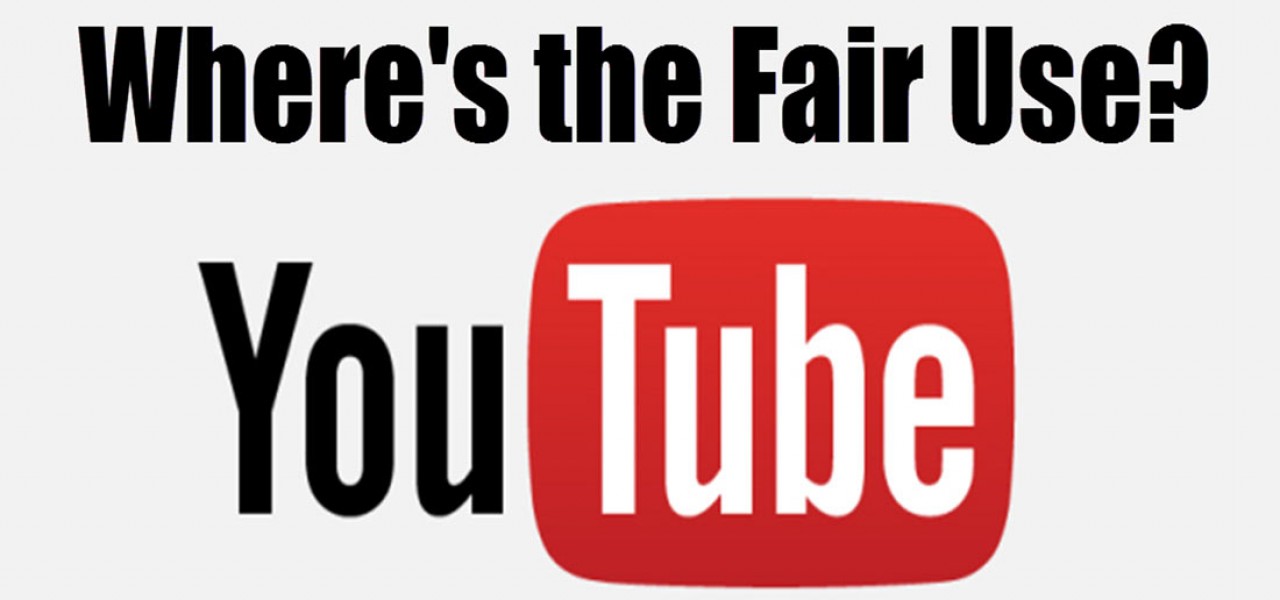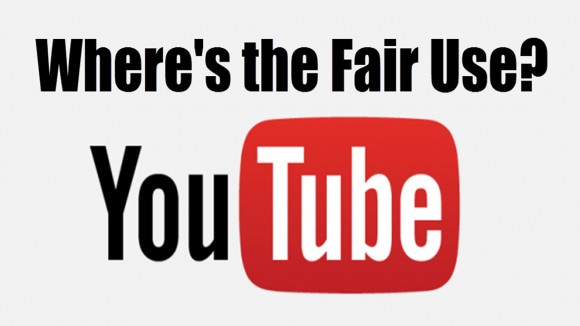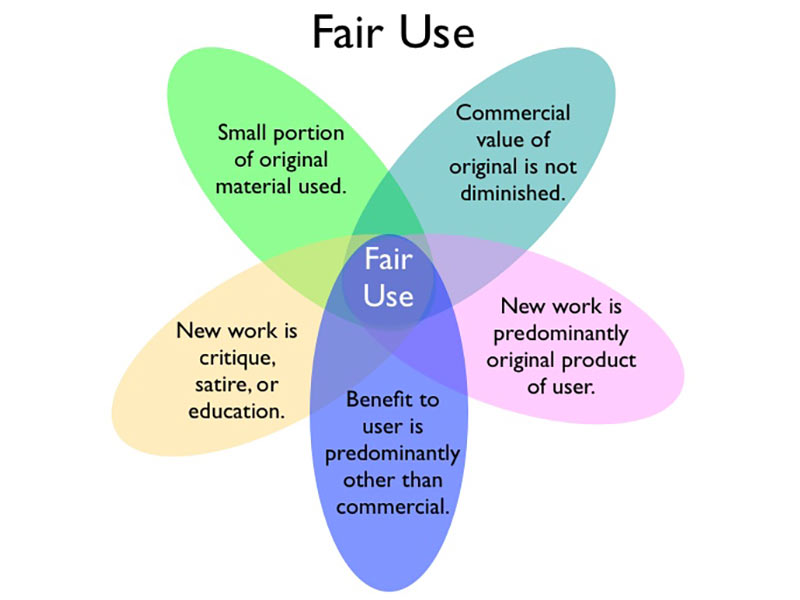

Internet Creators Are Pressuring Youtube To Respect Fair Use Laws
Doug Walker, better known as the Nostalgia Critic, and fellow Youtubers Alex from I Hate Everything and Adam Johnston from Your Movie Sucks, have launched a campaign to bring attention to Youtube’s harassment of creators who use fair use in their videos. The campaign, using the hashtag #WTFU (or Where’s the Fair Use), launched with an educational video that has received nearly 1.2 million views in less than a week.
Fair use is the exception to copyright law that allows content creators to use the otherwise protected works of others – without the copyright holder’s permission — if that use is for education, criticism, parody, news reporting, or research, among other similar uses. No license fee or other payment to the copyright holder is required.
Fair use is essential to creators like The Nostalgia Critic, who creates satirical reviews of popular movies, especially movies first released during the 1980s and ‘90s, such as Children of the Corn and Labyrinth. Like any movie review program, Walker incorporates clips from the subject movies; the I Hate Everything and Your Movie Sucks channels create similar content, offering humorous and critical takes on pop culture.
Unfortunately, Google-owned Youtube, under pressure from corporate copyright holders, such as the major movie studios, uses draconian copyright protection measures to wall off copyrighted works from purportedly infringing uses by Youtubers such as the Nostalgia Critic.
Youtube has a two-pronged system for allowing copyright holders to protect their work, and seems to have a “no questions asked” policy before allowing the copyright holder to make its claim. A copyright holder can either (1) make a “copyright strike,” in which a rights holder demands that Youtube take a supposedly infringing video down, whereupon Youtube will simply comply without investigation or consideration of the rights of the video creators; or (2) make a content ID claim, where the rights holder claims its protected work is being used by a video on YouTube, and can then either block the video or actually confiscate any advertising revenue the supposedly infringing video earns.
More troubling, these provisions allow for third parties, so-called “rights-management” entities, to make a claim of infringement on behalf of copyright holders.
And, perhaps most egregiously, YouTube even allows for automated claims: when a computer detects the use of copyrighted material on a YouTube channel by cross-checking against a database of protected works, it can automatically make, with no human involvement, a claim of copyright infringement.

This system allows copyright holders, including the major studios, but also smaller companies and individuals, to wildly abuse Youtube’s policies and to restrict the free speech rights of other content creators, to confiscate their earnings, and to damage their livelihood. And abuse it they do: As Doug Walker reveals in his video, he is forced to deal with a copyright takedown notice or other such hassle every other day of the week.
Then, like some lost scene from the Terminator series, Youtube requires creators to fight back against these faceless rights-management entities and computer claimants in their lengthy, opaque appeals system, often without knowing against whom they are actually fighting.
All simply to recover their legal right to free speech.
The abuse heaped upon the content creators is consistent with the studios’ general abuse of copyright law, evidence of their hysteria over digital content, as covered on this site previously.
Until Youtube makes reforms to protect the rights of the content creators from whom it earns its profit, creators must rely on well-established third-party organizations that seek to protect the rights of content creators who lawfully use the copyrighted works of others. The Fair Use Project was set up by the Center for Internet and Society at Stanford Law School, led by renowned law professor Lawrence Lessig. It’s “the only organization in the country dedicated specifically to providing free and comprehensive legal representation to authors, filmmakers, artists, musicians and other content creators who face unmerited copyright claims, or other improper restrictions on their expressive interests.”
There’s also the Electronic Frontier Foundation, or EFF, the leading nonprofit organization defending civil liberties in the digital world.” While dedicated to a wide range of digital rights, EFF counts fair use among its key issues.
On Youtube’s informational page about copyright strikes, it claims that “[w]hen a copyright owner formally notifies us that you don’t have their permission to post their content on the site, we’re required by law to take down your upload.” Not only does this statement completely misstate the law, it ignores fair use entirely.
Youtube allows such copyright strikes to be removed from an alleged infringer’s record if they attend the company’s “copyright school.” But it would be helpful if Youtube learned more about copyright law itself before lecturing others to do the same.

.png)